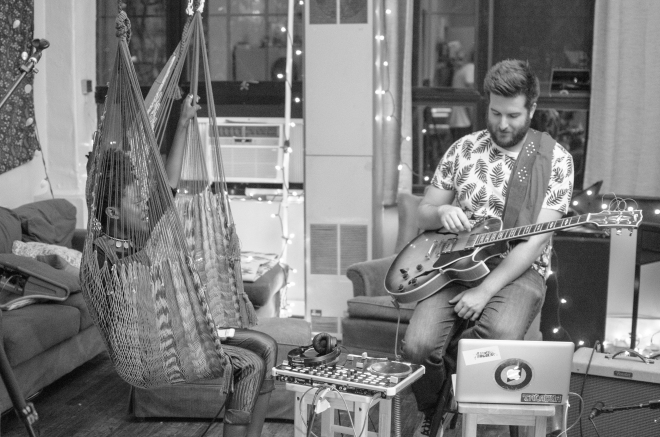New Play Too Much Session: JOJO ABOT
New Play Too Much Session: JOJO ABOT


Usually, there is a disconnect between the intention of the artist and the actual work itself. It’s inevitable. If we let artists dictate the interpretation of their work, then we’d be missing out on the fun of piecing together its many meanings. Some of these interpretations will be personal and reflect our experience. The other half of interpretation is often relegated to the work of the critic, a professional opinion. It’s the audacity to find universal themes and truly understand what a work of art is about, regardless of intention. It’s an impossible task, and yet there is always a moment of clarity that piques our interest.
Jojo Abot’s debut EP Fyfya Woto is indicative of this task. It is the experience of a Ghanian musician working with a producer in Denmark to record an album where she sings in both English and Ewe. Not only that, but she mixes genres such as reggae, afrobeat, indie pop, and so on. It’s a mess of influences. But at the heart of this record is its commitment to narrative.
Fyfya Woto was inspired by the history of the transatlantic slave trade in Africa. From there, the story took on a life of its own. It is the story of a tragic love affair between a black woman and a white man during this time period yet that does not exclude their story from resonating in a more modern context. The narrator goes back and forth, affirming her right to choose her own destiny. And even with the heavier aspects of the narrative, the EP sounds joyful, soothing in a way. There is no despair, only passion on this record. Jojo Abot speaks of the greater love, but not without sacrifice first. This EP is an homage to the past, to the diverse influences and experiences that contributed to its overall sound. It is also a story that remains unfinished. The sequel, which is already in the works, will continue the woman’s story as she is shipped off to America to become a slave. Perhaps this follow up will be darker in tone, but I have no expectations. Jojo Abot is an artist not beholden to any particular constraints, so why should I do the same with my review?
 Jojo Abot’s “Pi Lo Lo” session was recorded live at The Color Station Studio. Visit our friends over at Color Station and watch the rest of our TCSS sessions here.
Jojo Abot’s “Pi Lo Lo” session was recorded live at The Color Station Studio. Visit our friends over at Color Station and watch the rest of our TCSS sessions here.
Photos by Paul Payabyab-Cruz



